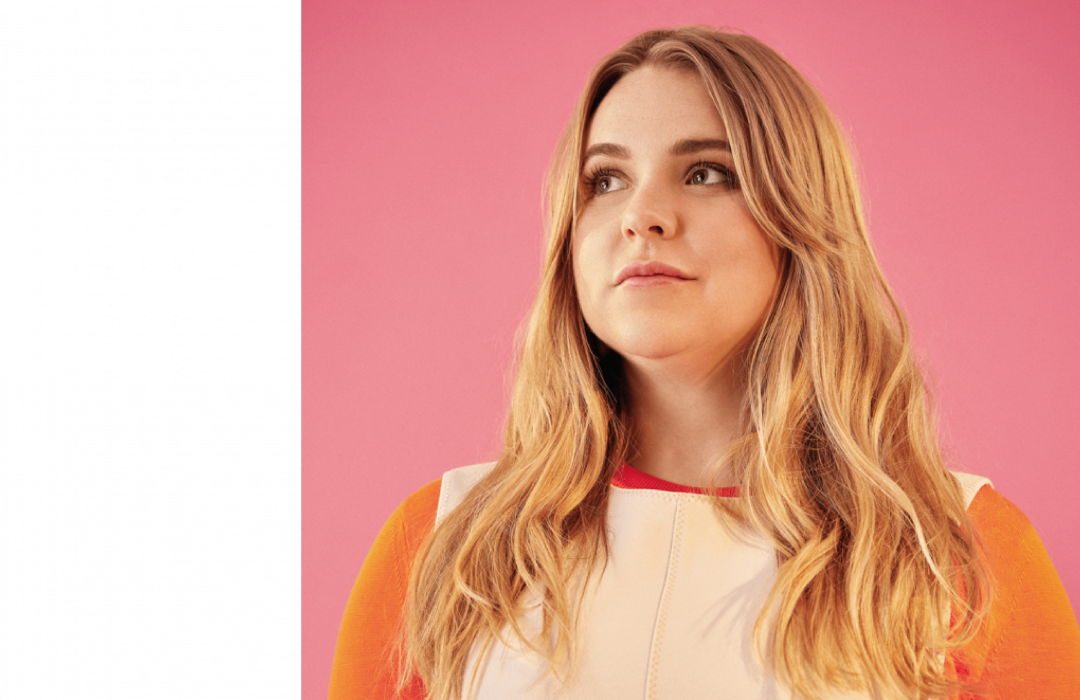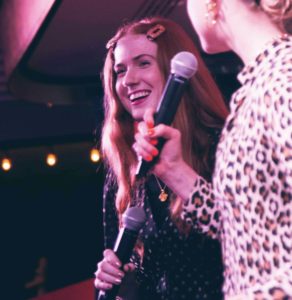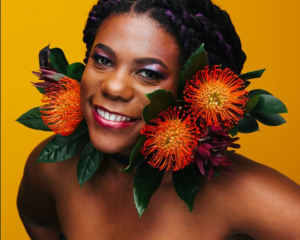
Paradym Partner: Amy Thomson, Founder of Moody Month
Paradym speaks to Amy Thomson on burnout, being a female founder, and empathy as a superpower.
6 MINS

Amy Thompson grew up in the deep countryside of Norfolk before going on to found her own communications agency and become the CEO of a technology company. She recalls, like so many young women, spending most of her youth feeling ‘clumsily’ uncomfortable in her body and sense of identity. It was only once she blossomed into a woman, running her own agency where Nike was her biggest client that she began to realise just how much women’s bodies and health are misunderstood. Amy explained to us that even the biggest health brands in the world don’t like to talk about hormones and cycles and believe young women across the world “are doing a disservice” by not providing appropriate information about the relationship between their hormonal minds and bodies.
When Amy started Seen, her own agency, in 2011, she spent long stretches of time travelling and dealing with the stresses of running a business. She was told that this was what ‘success’ looked like but it took a strain on my mind and body. In 2016 her periods totally stopped. She spent almost 12 months being told she may be infertile or suffering from any number of terrifying illnesses. After extensive testing, the only female doctor she spoke to explained her condition may be a result of overstimulation of stress hormones cortisol and adrenaline. Amy was experiencing burnout.
This was her turning point. She sold her agency and began building a company, Moody Month, an tech app dedicated to enabling women to track their cycle not for fertility or contraceptive, but as a daily and weekly wellness barometer.
We chose to spotlight Amy because we are united by the core mission, values and purpose of Moody Month. Understanding your own emotional patterns can help unlock so many negative behaviours and put you on a path to good health. We spoke to Amy about three key Paradym pillars: awareness, success and identity exploring everything from burnout, being a female founder and empathy as a superpower.
Could you tell us about Moody Month and what inspired you to start it?
Moody Month is app technology that allows women to track their monthly cycles and log their moods and symptoms. The idea to build a long term picture of their daily, weekly and monthly hormone patterns. With the core mission being to build technology that allows women to track and understand her hormonal health for happiness
It is a simple app and you input some basic information about your cycle and it will begin building a picture of your initial cycles. The more you log and the more you tell moody about what you’re feeling, the more it will share the patterns of your moods and symptoms
We’re on a mission to building ethical technology that never sells data and allows women to connect with their health, wellness and patterns for empowerment. We will be launching the solutions function in the app later in 2020, connecting women with the wellness support and advice they need to address their moods and symptoms.
Emotions play a huge part in Moody. Could you tell us about the role they play and the relationship between emotions and monthly cycles?
Hormones and cycles dictate everything, how well we metaboilse food, how we sleep or don’t sleep, when we feel in the mood for sex or not and even how we bond with friends and family. These cycles are fundamental to all our lives and they fluctuate across your monthly ovarian cycle, across your life. Understanding these cycles and syncing with them unlocks superpowers for your mind and body.
Your cycle is an emotional metronome for your daily, weekly and monthly pace. If you can use your period cycle as a beginning and end of each month, you can begin to track the patterns of your moods and symptoms across your four phases of hormones within this cycle. This then allows you to understand when something is wrong, or to optimise yourself when you’re healthy and know when in your month to slow down or speed up.
We believe self-awareness is the foundation of any kind of personal development. What does self-awareness mean to you?
This is a skill that takes time to master. I think being accountable for failures and mistakes is the key for me. I know i am going to get 80% of things wrong and so when i get 20% right i can celebrate and enjoy the 80% as a route to that golden 20%. Not beating myself up about getting things wrong and avoiding competing with myself with unrealistic goal setting and personal targets.
You mention you reached burnout. What did this look like for you?
Burnout is unique to everyone, as is your mental and physical health. I think people assume that they know when they are burnt out, as somehow your body stops or bursts into flames, sadly it’s more of a slow burn and often we don’t even know when we are running on empty.
There were many manifestations and signs, mostly ones I ignored. For me it was the compounding of all these symptoms and moods, that forced me to stop, they included:
erratic eating and appetite, going from being so hungry I could faint, to having no appetite at all. Losing my emotional barometer, often finding myself in extreme highs or lows. Not being about to get to sleep, but then when i did, finding it impossible to get out of bed due to fatigue. My periods then stopped and I began to gain a lot of weight. I also suffered very badly with constipation, which is another sign of hormonal imbalance, along with all the other moods and symptoms I was experiencing. What I didn’t do was listen and change my pace. I just ignored every sign until my body became completely exhausted and the fatigue became so extreme I couldn’t even walk to the tube. I had to get a taxi to and from work. Not listening to the signs is also a form of denial that you are somehow superhuman and can overcome it.
How have you changed your emotional patterns to have a healthier relationship to work? What does this look like? Since burnout and understanding your emotional patterns how did your work identity change?
I learnt to listen and hear the physical and emotional signs of when things are too much, which now hopefully helps me avoid hitting such an extreme end point. I hope to never push my mind and body that far again, I now respect my happiness too much! It’s a hard balance to strike sometimes though as an ambitious person.
Knowing that you have a safe place with friends and family to be your most vulnerable self, helps you also craft the right roles and environment for you to build an identity that serves you in work and other professional spaces. My identity in work has evolved from being in an agency to running a tech company, as my purpose, motivation and leadership styles evolved. However I will always stay true to the fact that my identity and work life are only one part of my wider evolving self and work is just work, even if it’s your own company and it doesn’t always have to define you. That is a lesson I learnt about myself and my identity from burnout and from getting older and moving into a new stage of my career with Moody.
How have you found the experience of being a female founder? Particularly as your company focuses on women’s issues and the importance of emotions, subjects which have historically been perceived to be unimportant?
Being a female founder has not been easy. As a woman you are easily disregarded by investors, “The world thinks in stereotypes and if you don’t look like what they see as a success story or a ‘unicorn’, you can be quickly dismissed.” But I believe women have been socially conditioned as a great superpower: emotional intelligence which can be a huge benefit because when you found a company, as a woman you often don’t just have drive and ambition, but also empathy and this makes for great leadership.
Your Patterns
What are your emotional patterns/ emotions identity?
I am highly driven by cause and purpose, with a true belief that you need to bring as many people into your mission and vision as possible to drive home anything that seeks to change a status quo. Power in communication and collaboration.
I have always been highly connected to my own and other people’s emotions, due to trauma and heartache in my life. However it wasn’t until I realised the connection between mental and physical health, that I was able to harness my emotions to help drive me.
I think you always evolve. Emotions and your body are not static, but understanding the patterns and factors at play are the key to evolve with your emotions, not shut yourself down.
Life is one long line of weird and I think everyday we have different emotional impacts, I believe in learning and listening to your limits, so you know how to self support and ensure that you don’t push yourself too far, as you are the only person who really knows what makes you happy or sad.
If you can’t see your own pattern, how can you ever optimise? Patterns are crucial to our ability to understand ourselves and the world around us. It is essential to identify your emotional powers and vulnerabilities, so you can optimise your life and work.
Recent Posts


Podcast: Using feelings to build habits & mental acrobatics



